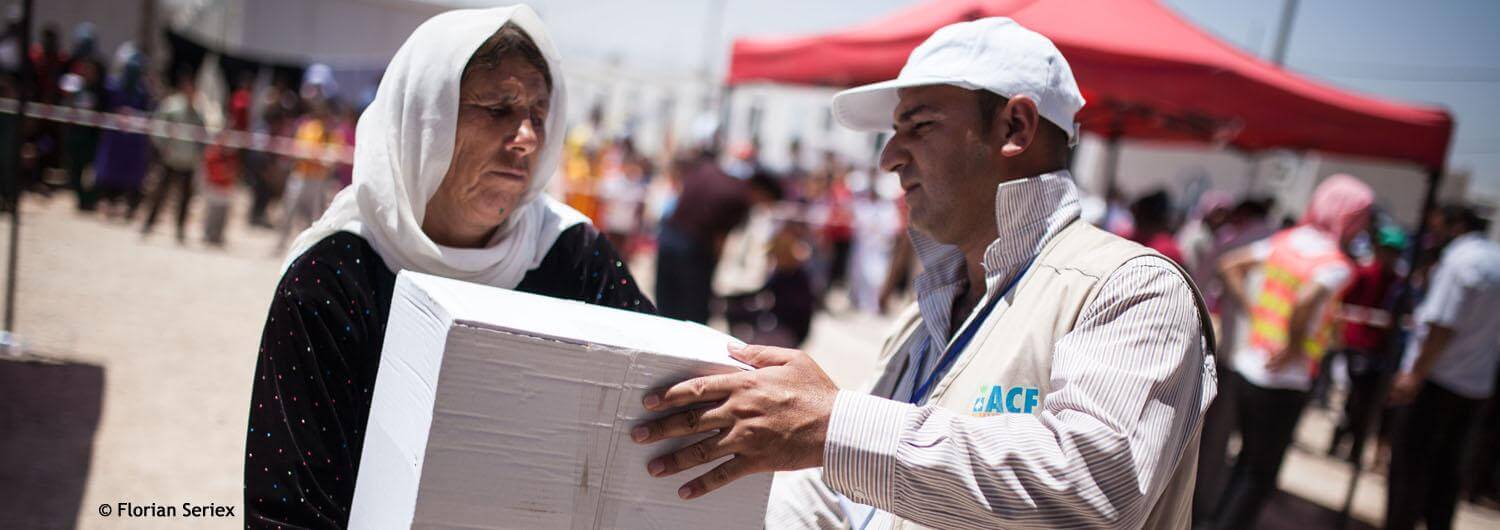News
Mosul: Protection of Civilians Must Be at the Heart of the Response
19/10/16

A meeting of 20 countries will be gathered in Paris on Thursday 20th around the stabilisation of Mosul. The meeting is focused on the protection of civilians, delivery of humanitarian assistance to the populations and future governance of the Ninewa region and Mosul. While regretting the lack of consultation of the civil society on those very important issues, we reiterate its call to the all parties to concentrate their efforts to ensure the protection of, and free passage to safe areas for all civilians.
Up to 1.5 million Iraqi civilians could be struck by the ongoing offensive to retake Mosul. We call on the international community to provide operational and financial support to the humanitarian response on the sole basis of need and to detach it from political objectives, in full compliance with humanitarian principles. “Our main concern is for the civilians to be affected as little as possible by the hostilities. We fear the population could be blocked in a city under siege, used as human shields, taken in the middle of clashes or impacted by airstrikes campaigns”, says Country Director for Action Against Hunger, Aneta Sarna. To prevent dramatic situations, forces involved in the Mosul offensive must take all feasible measures to avoid civilian harm and to preserve the safety and dignity of civilians as well as their right to access humanitarian assistance and safe areas through the application of protection standards and adherence to International Humanitarian Law.
The wave of civilians that could flee the city and the way their displacement will be managed could exacerbate the existing inter-ethnic tensions, particularly in areas experiencing high levels of humanitarian needs and discrimination. The screening procedures that are going to be implemented should respect international and national standards; be fair, consistent and transparent; protect the dignity of individuals; and do not create protection risks for the most vulnerable. While this screening process will have to be conducted only by state actors, support and presence of humanitarian protection partners must be allowed.
“At this stage, most of the camps aren’t ready and they won’t have enough capacity to accommodate a large number of people. Furthermore, most IDPs will likely not be able to return to their homes before the winter, which will exacerbate needs,” added Ms Sarna. Access to shelter, water and sanitation services, health and food is anticipated to be limited to critical, while protection of the IDPs, including psychological support, is a key concern. During this meeting in Paris, discussion must be held to ensure availability of adequate funding necessary to meet at scale humanitarian needs arising throughout the Mosul military offensive and subsequent displacement.
States should support urgently the dialogue between Baghdad and Erbil on governance and the provision of public services in newly recovered areas and the « disputed internal boundaries » between the Government of Irak and the Kurdistan Regional Government. At the very least, concrete ad hoc mechanisms have to be found, to ensure the population do not pay the price for this unresolved situation.
We plan to support up to 90,000 people fleeing Mosul in addition to its regular activities through distribution of food, cooking sets, basic emergency shelter kits and hygiene kits as well as water trucking, installation of latrines and showers and psychological support to the most distressed individuals.